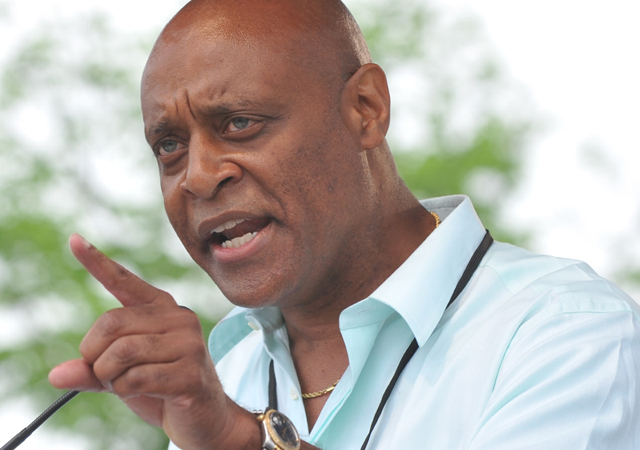Scribecast: Kevin Chavous on His Tireless Efforts for School Choice
Lachlan Markay /
Few legislators have done more to advance school choice than Kevin Chavous. As a city councilmember in Washington D.C. from 1992 to 2004, and a chairman of the council’s Education Committee, Chavous was instrumental in implementing the city’s landmark Opportunity Scholarship Program.
A partnership between the federal and city governments, the DC OSP was one of the first and most successful school choice programs in the country. Students received vouchers for $7,500 for tuition at some of the city’s top private and charter schools. Many schools took it upon themselves to make up the difference.
“You had kids from Southeast DC, with a combined family income of less than $25-30,000 a year, rubbing shoulders with some of the most elite in the city – and doing well,” Chavous noted in this week’s Scribecast. With a 91% graduation rate in a city where the average rate is 73%, the program was tremendous success.
Listen to our interview with Kevin Chavous on Scribecast
But Chavous acknowledges that the politics of school choice make it a difficult sell, even with its impressive record. The DC OSP itself was “slated to be defunded by President Obama because of politics,” he noted, though Speaker of the House John Boehner (R-OH) led a successful charge to reinstate it during what Chavous called a “banner year for school choice” in 2011.
Legislators must take a break from the politics of education to see the real need for reform, Chavous insisted. “The biggest inspiration for me was getting away from city hall and getting away from legislative chambers and actually talking with parents,” Chavous said.
“You’ve got real live families with real live challenges and needs today…[and] as I got to know some of these families, I had greater sense of urgency about using my position in government to try to get some immediate relief and opportunities for families that otherwise wouldn’t have it,” he added.
Chavous is confident that the lessons he learned and applied in DC can be applied elsewhere. “The beautiful thing about school choice is you’re putting the power and the money where it needs to be – in the hands of the parents,” he insisted, “and I think that has application all over.”

